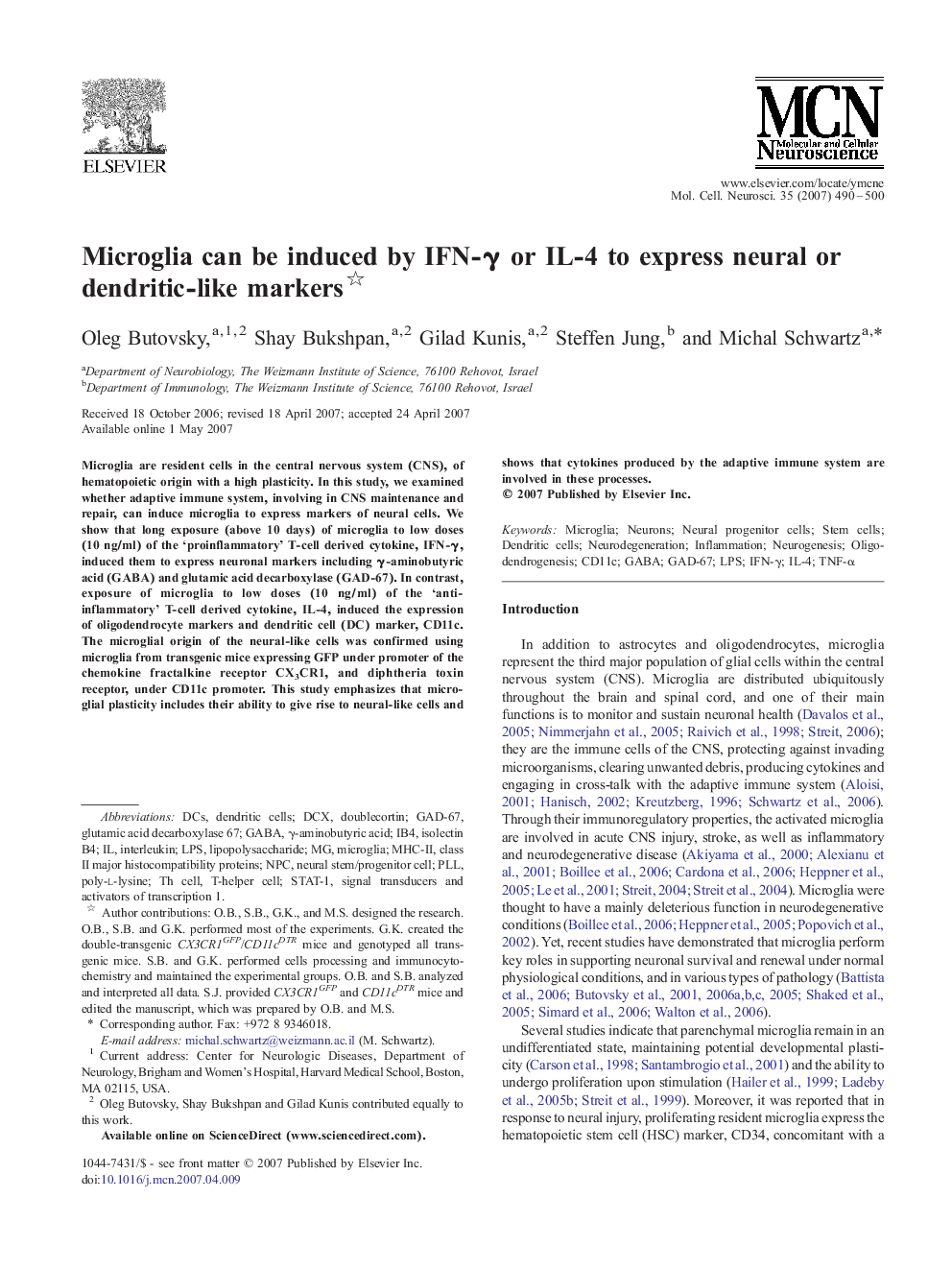| Article ID | Journal | Published Year | Pages | File Type |
|---|---|---|---|---|
| 2199077 | Molecular and Cellular Neuroscience | 2007 | 11 Pages |
Microglia are resident cells in the central nervous system (CNS), of hematopoietic origin with a high plasticity. In this study, we examined whether adaptive immune system, involving in CNS maintenance and repair, can induce microglia to express markers of neural cells. We show that long exposure (above 10 days) of microglia to low doses (10 ng/ml) of the ‘proinflammatory’ T-cell derived cytokine, IFN-γ, induced them to express neuronal markers including γ-aminobutyric acid (GABA) and glutamic acid decarboxylase (GAD-67). In contrast, exposure of microglia to low doses (10 ng/ml) of the ‘anti-inflammatory’ T-cell derived cytokine, IL-4, induced the expression of oligodendrocyte markers and dendritic cell (DC) marker, CD11c. The microglial origin of the neural-like cells was confirmed using microglia from transgenic mice expressing GFP under promoter of the chemokine fractalkine receptor CX3CR1, and diphtheria toxin receptor, under CD11c promoter. This study emphasizes that microglial plasticity includes their ability to give rise to neural-like cells and shows that cytokines produced by the adaptive immune system are involved in these processes.
